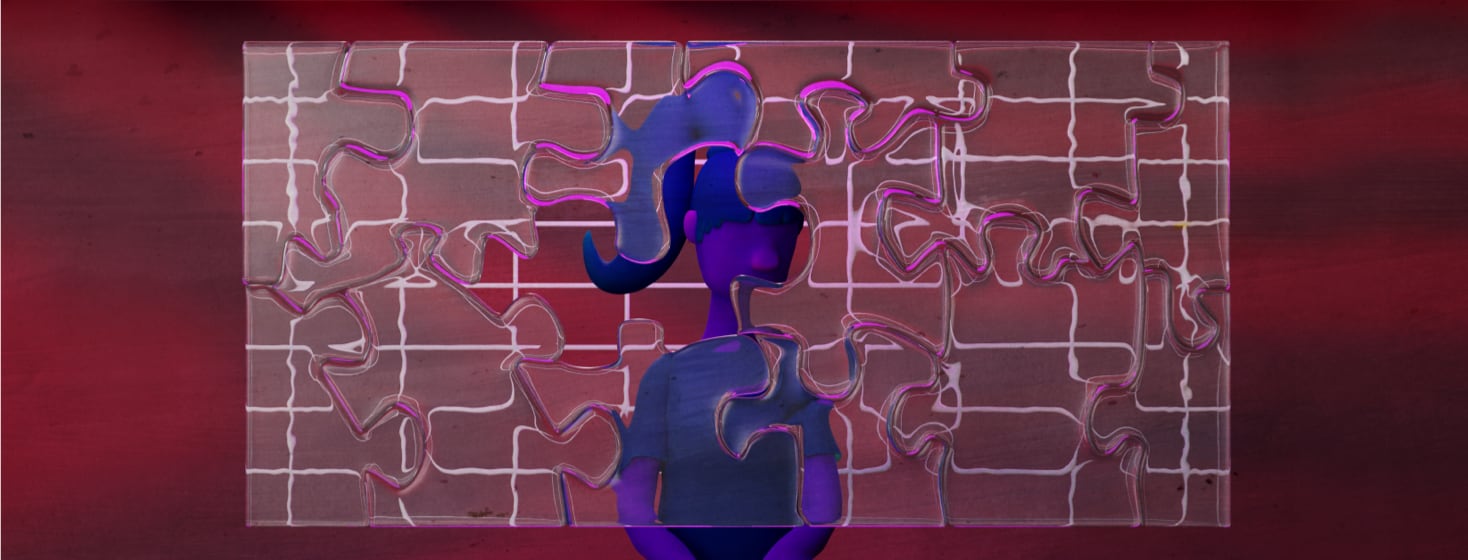Coping With a New Diagnosis: The Glass Puzzle
When I returned home for Christmas break during my first year of college, I found a white elephant gift that my mom had received at a work party. It was a puzzle. A 1000-piece puzzle of various gumball machines filled with brightly colored gumballs. It was a ridiculously difficult-looking puzzle. I’d never been into puzzles prior to that Christmas, but that white elephant gift blossomed into a Christmas tradition that has lasted nearly two decades.
Puzzles come in all shapes and sizes, with different levels of difficulty. If there was a puzzle difficulty scale where “one” was a 4-piece children’s puzzle and “ten” was a 3000-piece puzzle of a bowl of potato chips, my preferred difficulty level usually falls somewhere between 7 and 9. Basically, I like the large difficult ones. I would say I’m pretty good at putting puzzles together. I enjoy the process of categorizing different parts of the puzzle, analyzing the nuances of each puzzle piece shape, and analyzing the slight differences in colors that can tell you where the next piece goes.
Just like putting a physical puzzle together, the “puzzle” of figuring out a diagnosis can be just as challenging and frustrating at times. Signs and symptoms must be analyzed in the proper context in order to form a diagnosis. But what do you do when the pieces finally come together and spit out a new diagnosis?
The glass puzzle
A few months ago, I was on the phone with one of my good friends, lamenting that I had just received a new diagnosis. I already have so many! Why does there need to be another one? Every time I think my doctors and I have found out everything that could possibly be wrong with my disease-ridden body, more symptoms appear, more tests are run, and a new diagnosis is made. It’s frustrating. Just when I think the puzzle is finished or can’t possibly get more complicated, it does.
I told my friend, “It’s like my body is a puzzle, every new diagnosis is just a piece of who I am. But it’s so frustrating when I think we’ve figured things out, only for more things to pop up. It’s like looking at a glass puzzle. You know it’s there, but you can’t really see it. You can connect the pieces you have, but it’s impossible to see the pieces that are missing. And just when you think you’ve got the puzzle put together, you find another piece.”
Coping with a new diagnosis
Coping with a new diagnosis can be very difficult. Some days I can feel the physical weight of my health and adding one more thing feels like it will crush me. But I also have tools that help me cope.
The most important thing I do is educate myself. Whenever I get a new diagnosis, I do a deep dive to learn everything I can about the disorder. I watch YouTube videos, read research articles, list questions that I want to ask my doctor and seek out others who are afflicted with the same thing. They say knowledge is power and I think that absolutely applies to a new diagnosis.
I talk to people about my new diagnosis. Lately, I’ve been working with a counselor whose focus is chronic illness and rehabilitation. She’s a great sounding board and helps me process my feelings. As mentioned before, I seek out people who have the same condition and talk to them about it to see how they are dealing with the illness and learn all I can from them on how they cope.
I think my biggest coping skill is being able to use what I’ve learned to help others. Like being a health leader on platforms like this, I can share my story, my experience, and the things I’ve learned to help newly diagnosed people. It’s empowering to share personal experiences, and certainly therapeutic as well.
Have you recently received a new diagnosis? How do you cope with finding another piece of your glass puzzle? Let us know in the comments!

Join the conversation